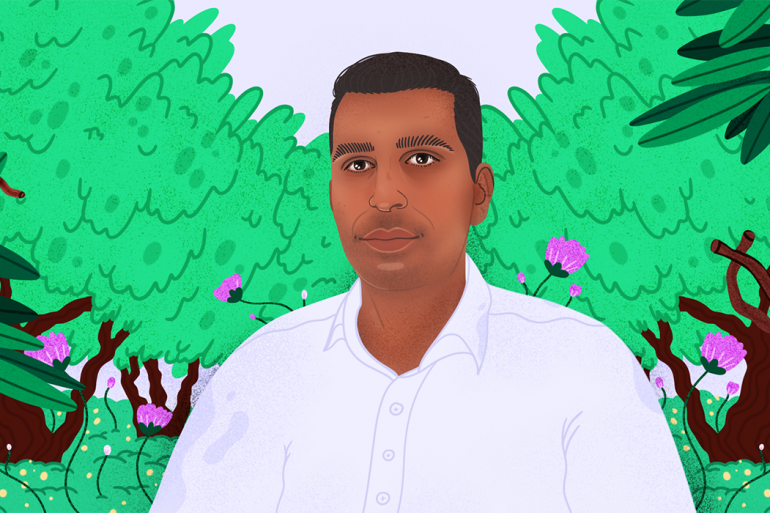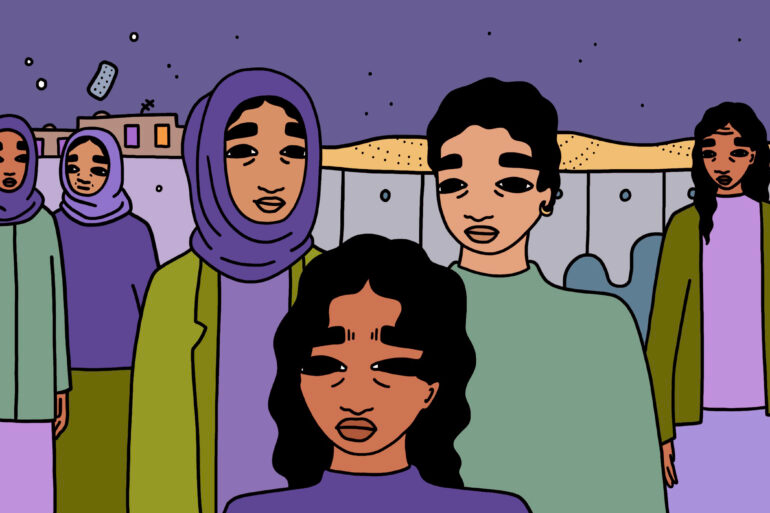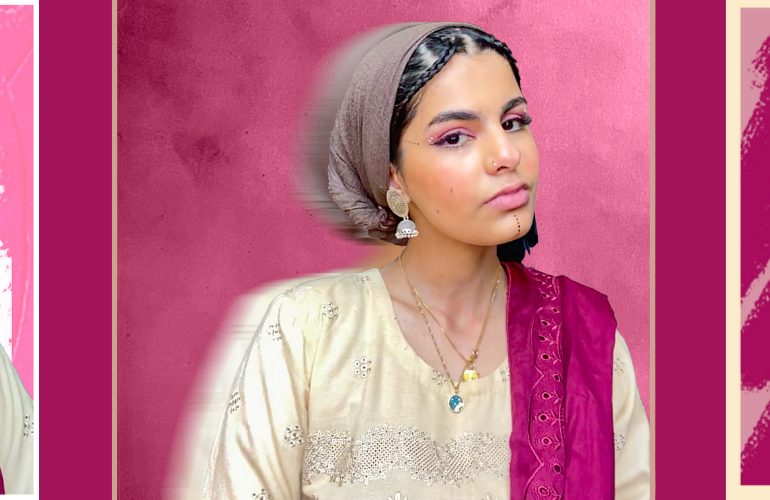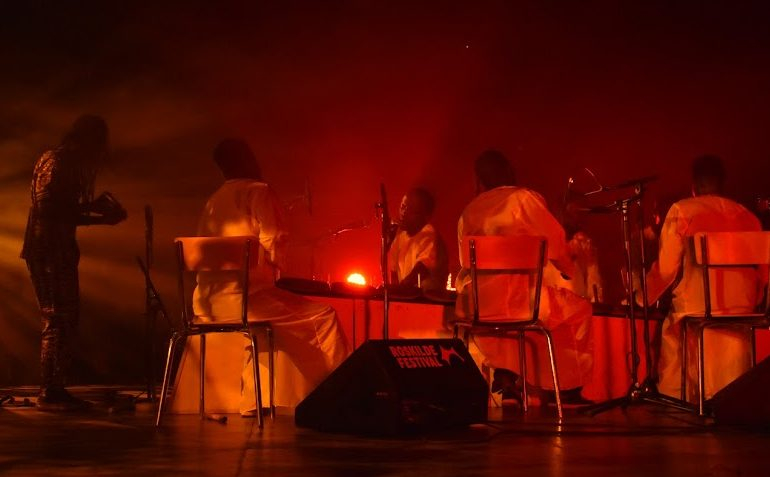It’s 12:00am on December 15th 2021, and around 30 young women are waiting outside Mexico City’s Prosecutor’s Office. They have been protesting peacefully for the past 24 hours, demanding that their friend and activist, Mime, is released from remand.
Suddenly, around 100 police officers from Mexico City’s police force appear out of nowhere. They start pushing, kicking and hitting all of the women present. They enter the Prosecutor’s Office and force Mime’s lawyer to leave the building.
The next morning, there was no coverage on what had happened. Mime was released, but she still faces criminal charges for her activism. No one questioned Claudia Sheinbaum, Mexico’s City Mayor, about why she authorised such a forceful operation against young activists.
State-sanctioned aggression
This is just one example of the types of violence, repression and political persecution unleashed by President Andrés Manuel Lopez Obrador’s government. By the end of 2021, at least 35 women faced criminal charges for their activism, and police brutality against women who protest had become the norm. Feminist activists continue to accuse Obrador’s government of making more effort to persecute young activists than to eradicate femicides, sexual violence, and all types of gender-based-violence against women.
The official statistics prove that the current government has been unable to diminish the gruesome violence women face in Mexico. 809 femicides occured in 2021; there were 184,464 cases of domestic violence, and 17,784 cases of women being raped.
And these numbers are considerably and deliberately conservative. According to organisations working with victims, there is nationwide resistance to classify murders of women as femicides. As a result, the government can claim that this crime is decreasing. So although 3,000 women were killed in 2021, and 50% show characteristics typical of a femicide, only 809 were classified as such.
Instead of listening to the rightful demands of women, Obrador has responded by denying and gaslighting their experiences. This government has discredited the feminist movement through a sexist and stigmatising discourse, fabricating investigation files to detail crimes supposedly carried out by young female activists.
The young feminist movement
Yet young women continue to protest. They usually wear black clothes and cover their face with hoods called capuchas to protect their identities. They attend marches armed with spray cans, hammers, and other objects used to deface government buildings.
The capucha has become a symbol of the fury felt by the young feminist movement in Mexico, a movement that is more radical than its predecessors and which strongly defies social norms and government laws. For these young women, organisation between themselves is the only way of surviving in a country where femicide is rife.
One of these women is Mermaid*, a 26-year-old member of the collective ‘Amor No es Violencia’ (Loving should not mean violence) that aids the mothers of femicide victims in their search for justice. Mermaid has been illegally detained due to her involement in feminist marches and was brutually attacked in 2019 when officials from the Estado de Mexico police force cracked open her skull.
I spoke with Mermaid about the current struggles women are facing in Mexico.
How would you describe the situation of women’s rights in Mexico?
Women’s rights in Mexico are in a deplorable condition. Although there have been big advances in terms of laws and protocols that the feminist movement has tirelessly fought for, these are not applied when women report crimes. Amber alerts and gender-based violence alerts are not sounded and spaces created to support women within institutions do not work. For example, the special prosecutor’s Offices that were created to address gender based violence often re-traumatise victims and refuse to prosecute crimes. Generally speaking, they ignore us.
We still face a crisis of violence. Femicides have not stopped, rapes have not stopped, women are disappearing daily, and infants and young girls face trafficking and murder as a constant reality.
How has the Mexican government responded to the demands of the feminist movement?
The Mexican state has done nothing to hear us or try to collaborate with us. We have demanded that they remove people in certain positions like the Ombudsperson for the Human Rights Commission, Rosario Piedra Ibarra, because of her negligence and nepotism; yet nothing has been done.
It doesn’t matter how non-violent our actions are or how reasonable our demands are – there is no political interest in listening to young women. On the contrary, the government actively supports our persecution. We are hit during protests, they use tear gas without caring if there are kids with us and they have fabricated crimes against us. They aim to silence us, however despite their methods they will never succeed.
How would you describe the country you want to build?
We want a country where authorities respect and protect women, we want to walk in the streets at night feeling safe, these basic rights are yet utopic in Mexico. However, we won’t stop fighting until they become a reality. We have nothing to lose and that is why we can give everything to the movement.
We are doing this for the next generations of girls and women, so they have the rights and spaces we didn’t have.
What are your hopes for the feminist movement in 2022?
I envision a strong and angry movement. Younger and younger teenagers are joining the movement and they are more vocal about their demands.
In 2021, we were in Oaxaca demanding that the local government pass a law that would create a database of men who refuse to pay child support. A girl around 12 years old took the megaphone and started denouncing her own father. Then, when one of our friends removed her shirt and people started saying that was unnecessary, the young girl yelled in support: “It’s her body!”
The feminist movement in 2022 will continue to be one of the strongest movements in the country and continue to be a critical voice against the government. Despite the political persecution we face we have enough conviction to continue fighting for our rights. It is not a question whether we fight or not, because we are the ones who have to face this violence every day.
Subscribe to shado's weekly newsletter
Exclusive event news, job and creative opportunities, first access to tickets and – just in case you missed them – our picks of the week, from inside shado and out.

Like Mermaid says, the feminist movement in Mexico is unstopabble. Despite efforts from the Mexican government to silence it, it keeps growing and becoming more defiant of institutions and authorities.
2022 started violently in Mexico. In January, the body of 33 year old Liliana Lozadawas found 15 days after she went missing; in the same state a couple of days later, Elizabeth Ramírez also disappeared and then her body was found marred with signs of violence. Women are horrified by these and the many other cases occurring in every state of Mexico; and the year has just begun.
Claudia Sheinbaum’s office aims to force women to stay at home, to stay silent and to not protest. But they do not do this by responding to their demands or working to decrease violence in the city: for the government, repression and criminalisation is the answer to the crisis of violence and femicides that Mexican women face.
8th March, International’s Women’s Day is around the corner. The excitement and anger of women can be felt everywhere: in the posts they make on social media, in their marches, forums, workshops and demonstrations. Despite the potential legislative action and possible violence young women are ready to take to the streets and we need to be ready to stand with them.
* Name changed for safety purposes

In this image Ilsea attempted to portray the union of women, connected by collective love, representing the members of the feminist movement, where it’s important to remember that at the same time these warrior women have real lives, they are daughters, mothers, grandmothers, friends, etc. The snakes on the floor represent a macho society but the poison that it injects us can no longer hurt us because together we become stronger, the internal fire is what moves us, channeling rage, love, anger and sadness and turning this feeling in a super power to make a change.
What can you do?
- Follow Amor No Es Violencia on instagram
- Read more about this situation in Amnesty’s recent report, ‘Mexico: The (r)age of women: Stigma and violence against women protestors’













